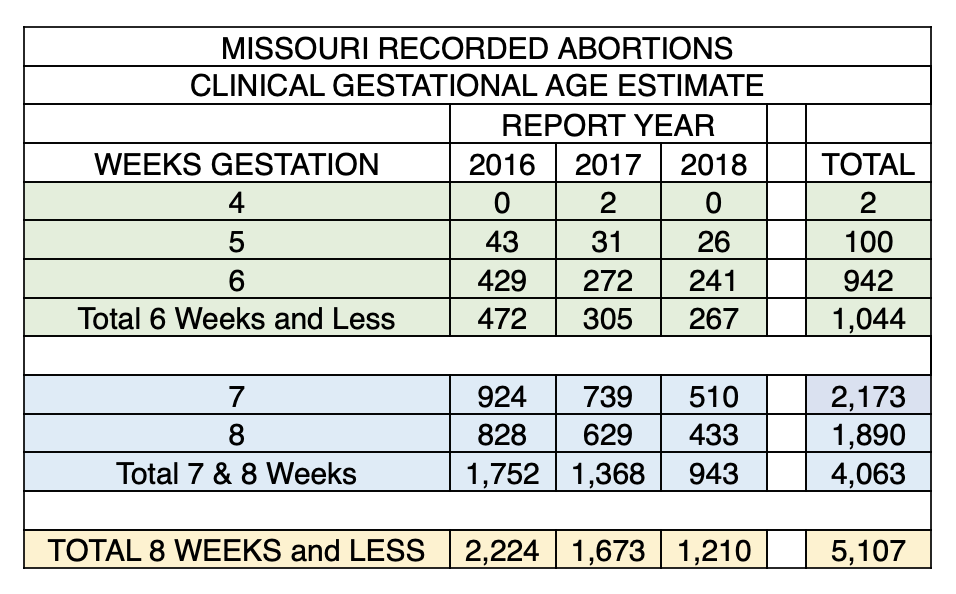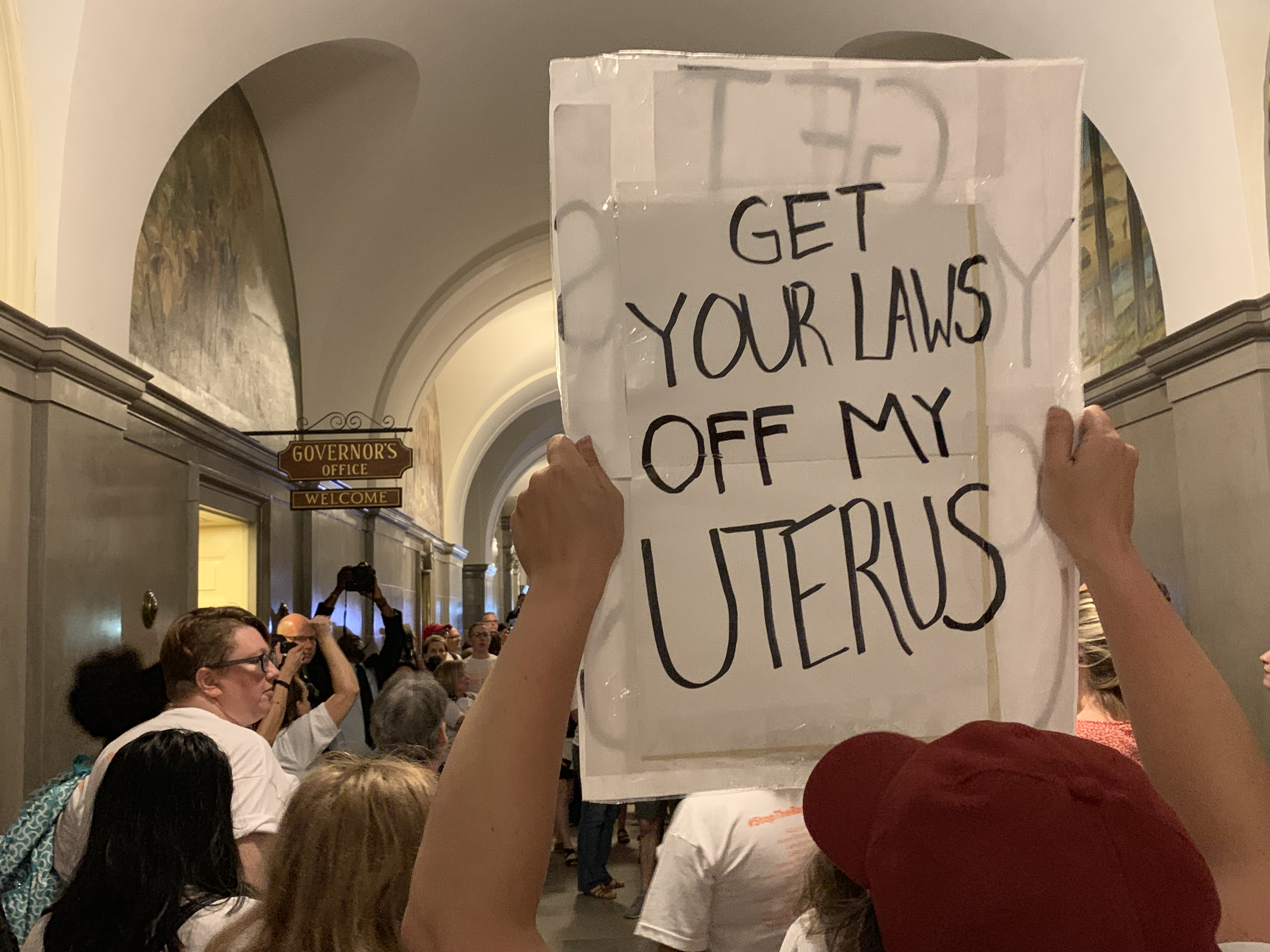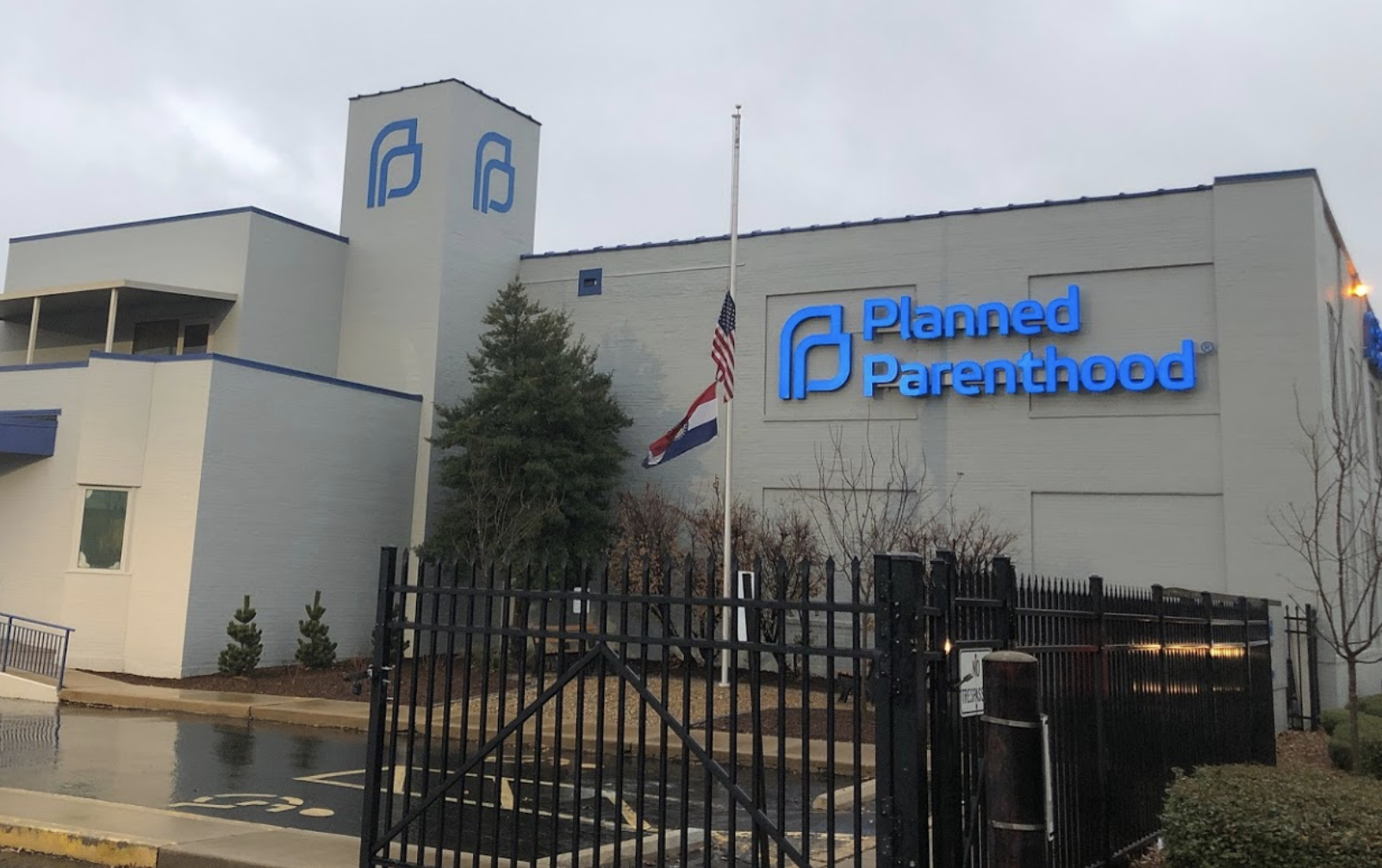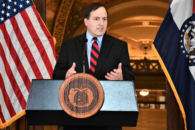Missouri’s law setting sweeping restrictions on abortion procedures in the state was set to go into effect this week until a federal judge issued a temporary restraining order less than 24 hours before its implementation.
The abortion bill has caused heated debate — both in the General Assembly while it was being worked on and among pro-choice and anti-abortion Missourians since. Here’s a look at what the law actually says and the potential impact on women in the state.
What does HB 126 say?
Championed by Republican Rep. Nick Schroer, HB 126 bans abortions after eight weeks unless in the case of a medical emergency. It also includes “nestled” components — designed to withstand court challenges — with restrictions at 14, 18, and 20 weeks.
Additionally, it does not allow for abortions based on race, sex, or a diagnosis of Down syndrome.
Should Roe v. Wade — the landmark U.S. Supreme Court ruling that declared a woman’s constitutional right to privacy included medical decisions such as abortion — be overturned, abortions would be illegal outright in Missouri.
The law does not include exceptions for rape or incest survivors — one of the more contentious components that angered some Republicans.
https://themissouritimes.com/61192/senate-democrats-filibuster-anti-abortion-bill-before-its-even-brought-to-the-floor/
When would the law go into effect?
The new law was set to go into effect Aug. 28.
However, the ACLU and Planned Parenthood filed a lawsuit last month asking a federal judge to block its implementation. U.S. District Judge Howard Sachs issued a temporary restraining order halting its implementation. However, he did allow the portion of HB 126 prohibiting abortions on the basis of sex, race, or a Down syndrome diagnosis to remain in tact for now.
The law did include an emergency clause which went into effect as soon as Gov. Mike Parson, a Republican, signed it in May. That provision required both parents of a minor to be notified if she sought an abortion.
Would the law essentially end abortions in Missouri?
Out of the 2,910 abortions performed in Missouri in 2018, 1,210 were pregnancies terminated at eight weeks or less, according to statistics from Department of Health and Senior Services. In 2017, 3,903 abortion procedures occured; 1,673 were at eight weeks or less.

How many clinics would this effect?
Only one facility in Missouri is equipped to provide abortion services — and it is embroiled in a legal battle with the state.
DHSS allowed the license for the Reproductive Health Services of Planned Parenthood of the St. Louis Region (RHS) to expire at the end of May, citing alleged deficiencies in its practices. It has been allowed to remain fully operational while it awaits a trial before the state’s Administrative Hearing Commission in October.
Could women be punished who choose to have an abortion?
Opponents to HB 126 have publicly raised concerns that the bill could allow for women who have abortions outside of the eight weeks be prosecuted. HB 126 explicitly stated physicians who knowingly violate the law would be guilty of a felony and could have his or her license revoked or suspended.

However, it also says women “upon whom an abortion is performed or induced … shall not be prosecuted for a conspiracy to violate the provisions provisions.”
Could Missouri voters decide the issue instead?
Several efforts — including one spearheaded by a GOP megadonor — were made to allow Missouri voters to decide on the abortion restrictions instead. None were successful.
After some legal back-and-forth, Secretary of State Jay Ashcroft approved ballot language for one petition earlier this month. However, supporters of the referendum were critical of Ashcroft, accusing him of having “dragged his feet” so they wouldn’t have enough time to collect the more than 100,000 signatures needed by Aug. 28 to put it on the ballot.
What are the current regulations?
Missouri women are able to seek an abortion up to 22 weeks from her last menstrual period. There is also a mandatory waiting period of 72 hours from the time a woman gives informed consent for the procedure.
Is Missouri’s law unusual?
Missouri passed HB 126 as the country saw a wave of similar bills signed into law this summer. Alabama, Arkansas, Georgia, Indiana, Kentucky, Mississippi, Ohio, Utah, North Dakota, and Tennessee also passed laws restricting access to abortions — and have seen court challenges, as well.

Kaitlyn Schallhorn was the editor in chief of The Missouri Times from 2020-2022. She joined the newspaper in early 2019 after working as a reporter for Fox News in New York City.
Throughout her career, Kaitlyn has covered political campaigns across the U.S., including the 2016 presidential election, and humanitarian aid efforts in Africa and the Middle East.
She is a native of Missouri who studied journalism at Winthrop University in South Carolina. She is also an alumna of the National Journalism Center in Washington, D.C.
Contact Kaitlyn at kaitlyn@themissouritimes.com.
























